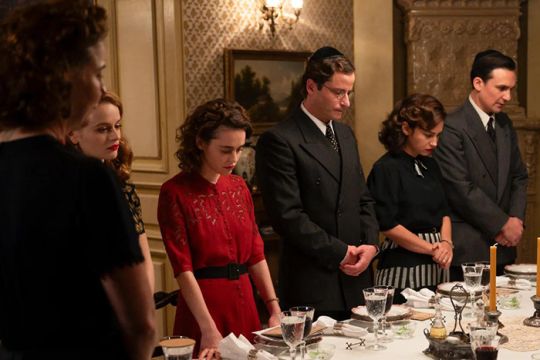
Today, as we celebrate the valor and sacrifices made by our veterans both at home and abroad, I cannot help but stop to think about those members of our military who are “less equal” than others. More than 400,000 women serve in the Armed Forces, and receive their health insurance from the Department of Defense’s Military Health System. But the health insurance available to servicewomen differs significantly from every other health insurance plan provided by the federal government in that it does NOT cover abortion services in the cases of rape or incest. Rather, servicewomen can only receive insurance coverage for abortion services if their lives are in danger. One out of three military women has been sexually assaulted, as compared with one in six civilian women. Between September 2010 and 2011, the Pentagon reported 3,192 sexual assaults – although that same study suggests that only 14% of assaults are reported. These numbers – both jarring and abstract – do not begin to describe the individual stories confronting women on military bases. Stand with Servicewomen, a coalition advocating for a change in policy that brings the health care of women in the military equal to that of civilians, highlights personal narratives from military leaders, women who have served, members of Congress and military physicians.
“We are defending a Constitution that doesn’t apply to us. This was a phrase I heard often after I joined the U.S. Army in 2005. At the time, I didn’t realize just how true that would be. I was raped by a fellow soldier when I was stationed in Korea. I found out I was pregnant as a result of the rape when my commander called me into his office one day to charge me with adultery. A doctor at the medical center had told my commander — but not me — that I was pregnant. I hadn't reported the rape because I was trying to "soldier on” and I didn’t trust my chain of command. This is an environment where women are constantly targeted for various forms of abuse. As it turns out I was not charged, not because I was raped, but because I was divorced. Then I faced the fact that military health insurance doesn’t allow abortion coverage in cases of rape, and I was unable to have a safe abortion off-base, so I was stuck. I was discharged from the military due to the trauma of the rape and attacks. I flew back home to the U.S. after being discharged from the Army for my own safety and ended up miscarrying.” Jessica Kenyon; Korea _________________________ “My patient Erica* was stationed in the Middle East and working as an Arabic translator when she was raped by her commanding officer. She became pregnant as a result and wanted an abortion. Erica couldn’t end her pregnancy at her base’s medical facility unless she reported the rape, which she refused to do. She feared that her rapist would physically assault her if she turned him in. She also worried that he would go out of his way to hurt her career. Erica had no choice but to fly home to have an abortion. Erica knew she was pregnant at four weeks, but she had to wait another ten weeks before she could go home. In addition to increasing the medical risk of her abortion, this ten-week delay complicated Erica’s emotional recovery from the rape. Her pregnancy was a constant reminder of the attack. “ Morris Wortman, MD; Rochester, NY
On this Veterans Day, take just one minute to truly make a difference in the safety of our military heroes: Write to your member of Congress and urge them to co-sponsor the Military Access to Reproductive Care and Health for Military Women Act (The MARCH for Military Women Act). Photo courtesy of Service Women Action Network
Related Posts

“We Were the Lucky Ones:” Bringing The Holocaust Out of History Books and Into Our Homes

Harnessing the Power of our Mothers Around the Seder Table

